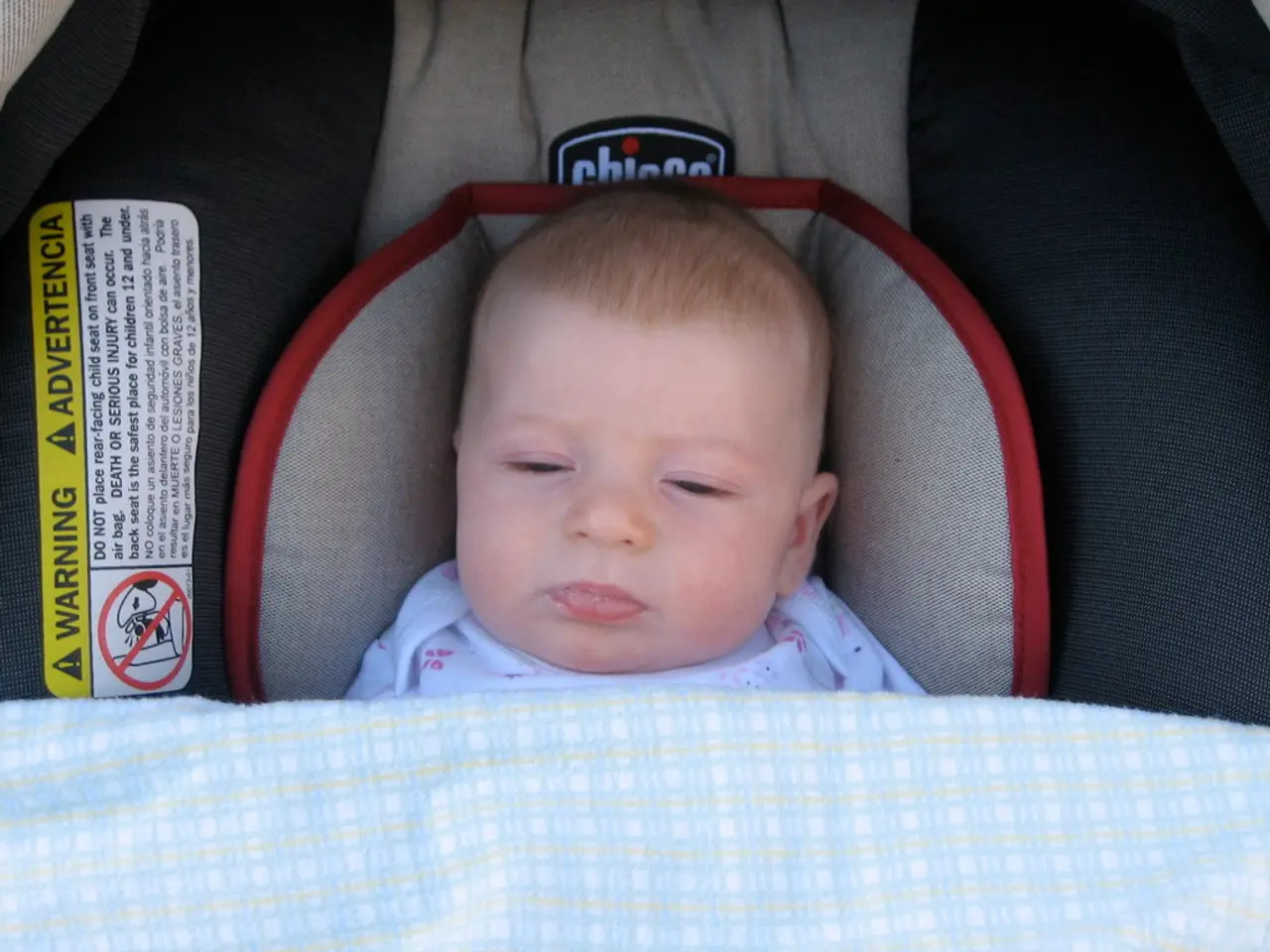Child Slip-ups from Bed, Potential Head Trauma: Signs to Watch Out For
Falls are a common occurrence for babies, as they can easily roll off elevated surfaces like beds, changing tables, and couches. While most of the time, babies aren't severely injured after falling, it's crucial to be aware of the signs that may indicate the need for immediate emergency medical attention.
Signs Requiring Urgent Medical Attention
After a baby has experienced a fall, it is important to monitor for specific signs that may indicate the need for emergency care. Key signs to look for include:
- Loss or change of consciousness: If the baby becomes unresponsive, hard to awaken, or shows a decreased level of consciousness, seek emergency care immediately.
- Seizures or convulsions: Any convulsions or seizure-like activity warrant urgent medical evaluation.
- Physical symptoms related to brain injury:
- Persistent or worsening headache (if the baby is old enough to express it)
- Vomiting, especially repeated episodes
- Bleeding or clear fluid draining from the nose or ears
- Unequal pupil size or dilation (eyes appear different sizes)
- Weakness or paralysis in limbs or face
- Loss of balance, difficulty moving, or poor coordination
- Changes in breathing, such as difficulty breathing or irregular breathing patterns
- Behavioral and cognitive signs:
- Prolonged irritability, constant crying, unusual lethargy, or difficulty calming the baby
- Confusion, disorientation, or difficulty responding to stimuli
- Sensory changes:
- Blurred or double vision (if observable)
- Sensitivity to light or sound
- Ringing in ears or unexplained odd tastes (though these are harder to ascertain in infants)
- Skin or tone changes:
- Pale, bluish, or gray skin color which can indicate poor oxygenation
- Poor muscle tone or very weak reflexes, which may signal neurological issues
Emergency Steps if the Baby is Unresponsive but Breathing
- Call for emergency help immediately.
- Check breathing by slightly tilting the head back and looking/listening for breaths for no longer than 10 seconds.
- If breathing, position the baby on their side with the head supported and slightly lower than the body to keep the airway open and allow fluids to drain.
Seeking Immediate Medical Care
If the baby shows any of the above signs after a fall, particularly any change in consciousness or seizures, seek emergency medical care without delay. Careful observation is critical in the first 24 hours after head injury, as symptoms can evolve rapidly.
Immediate medical evaluation can prevent serious complications. Always remember, it's better to err on the side of caution when it comes to your baby's health.
[1] U.S. Centers for Disease Control and Prevention (CDC). (n.d.). Head Injuries in Children. Retrieved from https://www.cdc.gov/headinjury/children.html [2] American Academy of Pediatrics. (n.d.). Head Injuries in Infants and Toddlers. Retrieved from https://www.healthychildren.org/English/health-issues/conditions/head/Pages/Head-Injuries-in-Infants-and-Toddlers.aspx [3] Mayo Clinic. (2020, December 18). Child Head Injury: Symptoms and Causes. Retrieved from https://www.mayoclinic.org/diseases-conditions/child-head-injury/symptoms-causes/syc-20356113 [4] American Academy of Pediatrics. (n.d.). First Aid for Choking. Retrieved from https://www.healthychildren.org/English/safety-prevention/at-home/Pages/First-Aid-for-Choking.aspx
- In case of a fall, it's essential to be vigilant about signs that may indicate mental-health issues in babies, such as prolonged irritability, constant crying, unusual lethargy, or difficulty calming the baby.
- News reports often focus on parenting challenges, and one crucial aspect is understanding the health-and-wellness implications for family-health, like identifying physical symptoms related to brain injury, such as a persistent headache, vomiting, or unequal pupil size in a baby after a fall.
- The health sector continually updates resources on health-related issues, and one resource for parents is the science-backed advice provided by health organizations regarding signs requiring immediate emergency medical attention after a baby experiences a fall, including seizures or convulsions and behavioral and cognitive changes.




